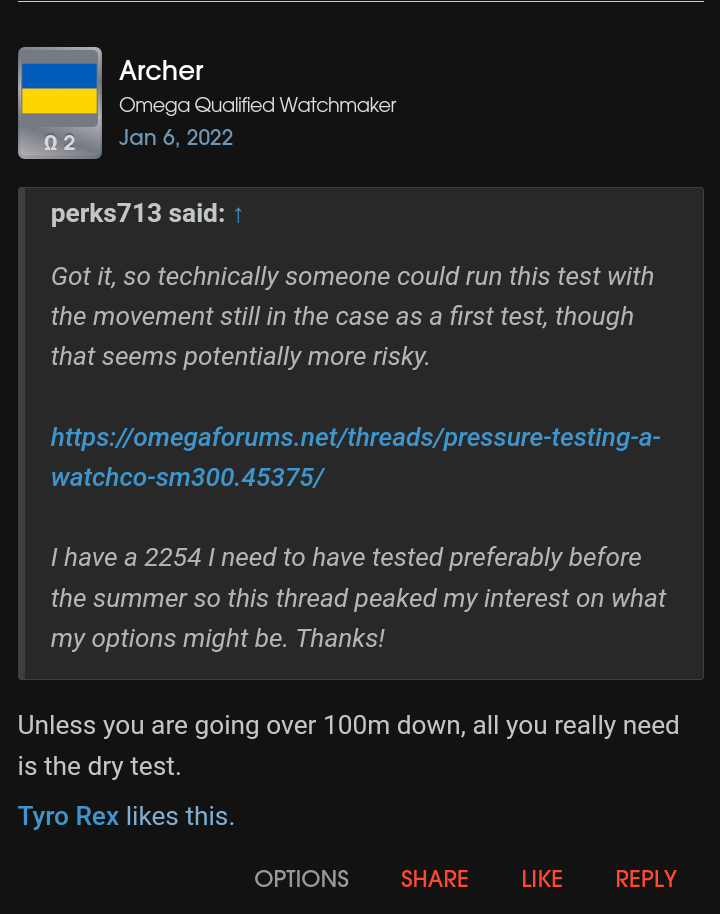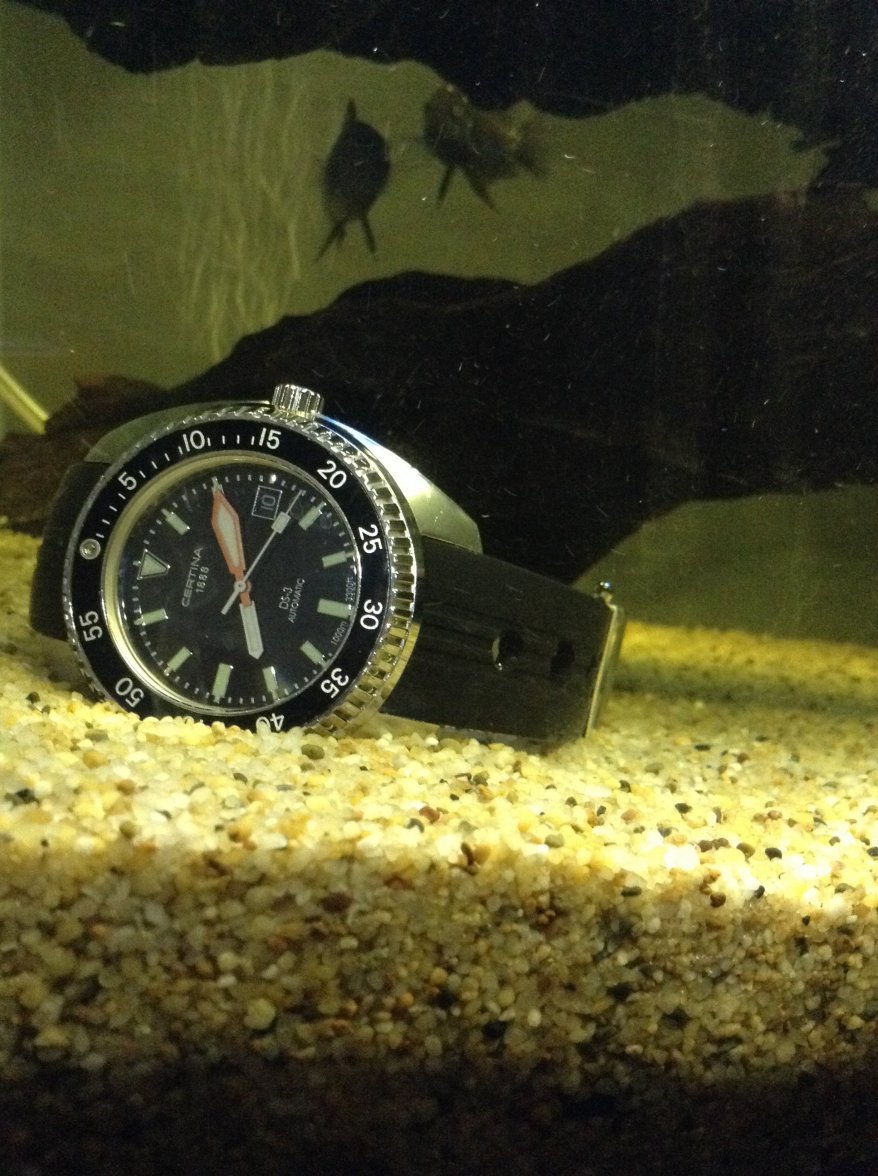- Posts
- 67
- Likes
- 66
tjs1295
·I understand all the suggestions about pressure testing your watches every year or so. I agree with everyone, although I haven’t kept up with it. My question is, can they replace the gaskets without doing anything else to the watch? Meaning, is it a simple thing that can be done while someone waits? I live in a small town, and it’s hours to the closest Omega or Rolex AD. Not sure about any independents, but I imagine a similar drive. I don't have a problem driving to do something proactive that will prevent a leak. I don’t dive with any of my watches, but I live on a lake and am in the water with them all summer. Wear them pretty hard the rest of the time.
Or does it work like this? Pressure test pass, and you're good to go for another year. Pressure test fail, and then replace gaskets as well as a service?
Or does it work like this? Pressure test pass, and you're good to go for another year. Pressure test fail, and then replace gaskets as well as a service?


